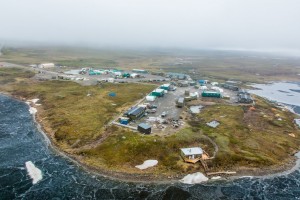
Dr. Ned Fetcher and chosen Wilkes students will be traveling to the Arctic Circle in June 2015 to conduct a study on the changing climate in the Alaskan tundra.
A $1 million grant from the National Science Foundation will allow Ned Fetcher, coordinator of the Institute for Environmental Science and Sustainability at Wilkes University, and several Wilkes undergraduates to study at the Toolik Field Station.
The Wilkes undergraduates will participate as field assistants on the team to study the effects of the changing climate on tussock cottongrass. They will be installing warming chambers around the cottongrass to study the effect of a warmer climate on the growth of the plants.
The project will have a broad impact on science beyond the research results in the Alaskan climate. The patterns observed in the tundra are expected to appear later in other ecosystems. The results of the project may serve as an indicator of the potential effects of adaptation of plants to climate change.
Wilkes will be in coordination with Jianwu Tang of the Ecosystems Center of the Marine Biology Laboratory at Woods Hole, Mass., and Michael Moody of the University of Texas.
Fetcher and Moody will study the genetic factors that lead the plant adaptation in a separate part of the study. Genetic markers will be used to determine patterns of genetic diversity and gene flow for regions of the tussock cottongrass. The results will provide important insight on the ability of the cottongrass to adapt to a warming climate change.
The project branches on an earlier study in 1980, by Fetcher and his colleagues on the tussock cottongrass. The earlier project involved reciprocal translocation; moving the cottongrass from the colder tundra climate to the southern Alaska climates and vice versa to study the adaptation of the plants. Since the initial experiment, Fetcher traveled to the Alaskan tundra four times between 2009 and 2012.
The Wilkes students will be staying at the Toolik Lake Field Station for a ten week period. They will be living in the dorms provided and attend classes and instruction on the research. The undergraduate students will be selected for the project through an application process.